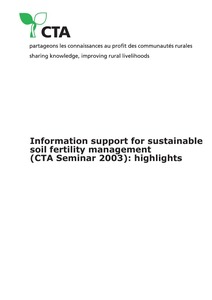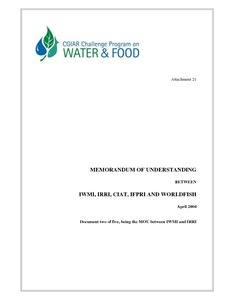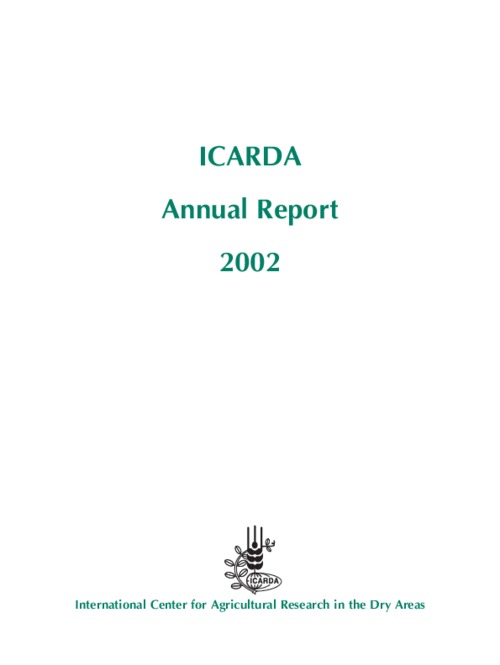‘Poor soils make poor people, and poor people make soils worse’. This is a situation that can be seen in many ACP countries. What information support can be offered...
This is the 19th of a series of Working Papers prepared for the Pro-Poor Livestock Policy Initiative (PPLPI). The purpose of these papers is to explore issues related to livestock development in the context of poverty alleviation. Livestock is vital to the economies of many developing countries…
En el presente documento se examinan diversos casos de proyectos en que se aplicaron enfoques o principios basados en los modos de vida sostenibles y que, como consecuencia de ello, surtieron un efecto concreto en la reducción de la pobreza. Puesto que no se trata de un estudio comparativo entre…
This volume is one of the products the project generated to meet these expanded expectations. At the time this volume was published these guidelines had been successfully employed in six municipalities of Bosnia and Herzegovina. The experience in each of these municipalities has been unique, but…
This report describes the project of strengthening the ability of the governments of the Nile Basin states to take informed decisions with regard to water resources policy and management in the Nile Basin. This objective to be achieved through the development of information products that…
1. Degradation of natural resources is a significant constraint to sustainable agricultural development in many developing countries. In particular, water scarcity is a major threat to achieving food security and reducing poverty. Better water management, therefore, is critical to reaching…
In the months since approval in November 2002, the Challenge Program on Water and Food
(CPWF) has evolved at a tremendous pace. Much has been achieved. Governance, management, personnel and procedures are in place and operational. The first call for proposals under the competitive…
This paper looks at the role of market imperfections in explaining leasing behaviour of households using sample data from the Highlands of Eritrea. It looks at the tenancy or land rental market, the position of households in that market (as landlords, tenants or non-participants) and assesses…
The paper tests two theoretical models that explain land productivity differentials between owner-tenants, owner-operators and owner-landlords, and between plots of land operated under different tenancy contracts by owner-tenants.The owner-tenants were richer in non-land resources than owner-…
Library has French version: TIC au secours des éleveurs du Sahel
The global reproduction of food, notably cereal crops, appears to have been remarkably resilient to the vagaries of climate. The unsung hero in this production chain may well be groundwater. When rainfed agriculture fails, the fallback is usually groundwater. First it is accessed to smooth over…
The year 2002 marked ICARDA's 25th anniversary, and coincided with several honors and awards for the center's excellence in research. Research on developing high-yielding kabuli chickpea varieties that thrive in cool, wet winter conditions earned the 2002 King Baudouin Award of the…





